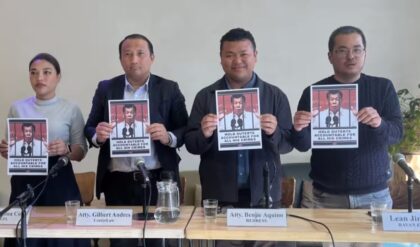LEO Austria has always been considered to be one lucky man.
He was fortunate to be there when SMB management gave up on its experiment with American Todd Purves, who was then consultant and de facto coach to stand-in Biboy Ravanes.
He was blessed that June Mar Fajardo was entering his third year in the pros and was coming off his first MVP season when Austria took over in 2014.
So timely was his appointment that he enjoyed a loaded Beermen side that also featured a former MVP in Arwind Santos, as well as former key Smart Gilas cogs in Chris Lutz and Marcio Lassiter.
An unprecedented run of success soon followed.
Through the first five seasons since Austria took the San Miguel job, he steered the team to eight titles – more than half of the 15 conferences played in the pro league during that span. That amazing run included a historic five straight Philippine Cup championships, including an awe-inspiring comeback from a 0-3 deficit in 2016, and two shots at a rare Grand Slam, the lone achievement to elude this team.
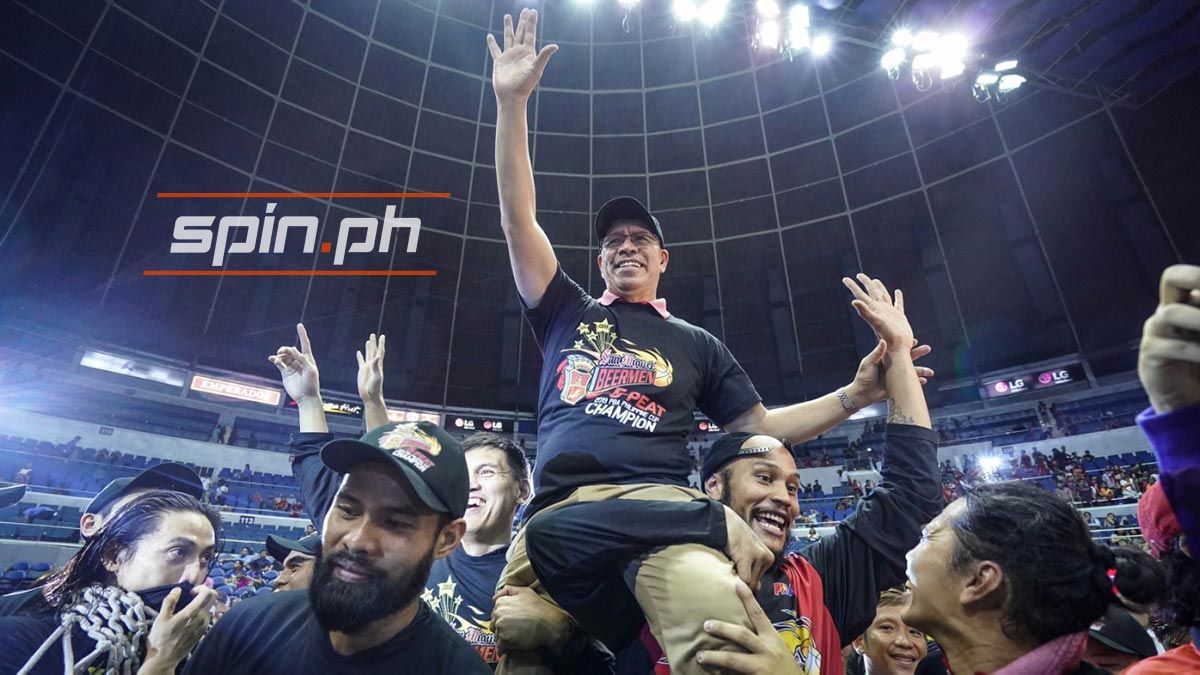
Photo by: Jerome Ascano
Such success of dynastic proportions hasn’t been done in the pro league’s history, more so in a coach’s first five seasons as a coach.
The closest in a half-decade span? The legendary coach Baby Dalupan, who won seven titles for Crispa in the league’s first five years, including, of course, the first Grand Slam in league history.
Norman Black won six rings in his first five years at San Miguel beginning in 1987, including the Beermen’s Grand Slam in 1989.
Not even the league’s winningest coach Tim Cone, who first handled Alaska in 1989, came close. The American mentor had to wait two years before winning his first title when the Milkmen ruled the 1991 Third Conference.
Yet for all the trophies that Austria has amassed, it’s interesting how his name has never been mentioned in the same breath as, say, Cone or Black or Yeng Guiao in discussions on the best coaches in the PBA.
Believe it or not, Austria is unpertubed.
“I’m happy na nagawa ko yung ine-expect nila sa akin. At nakikita ko naman na tama ang ginagawa ko,” Austria said.
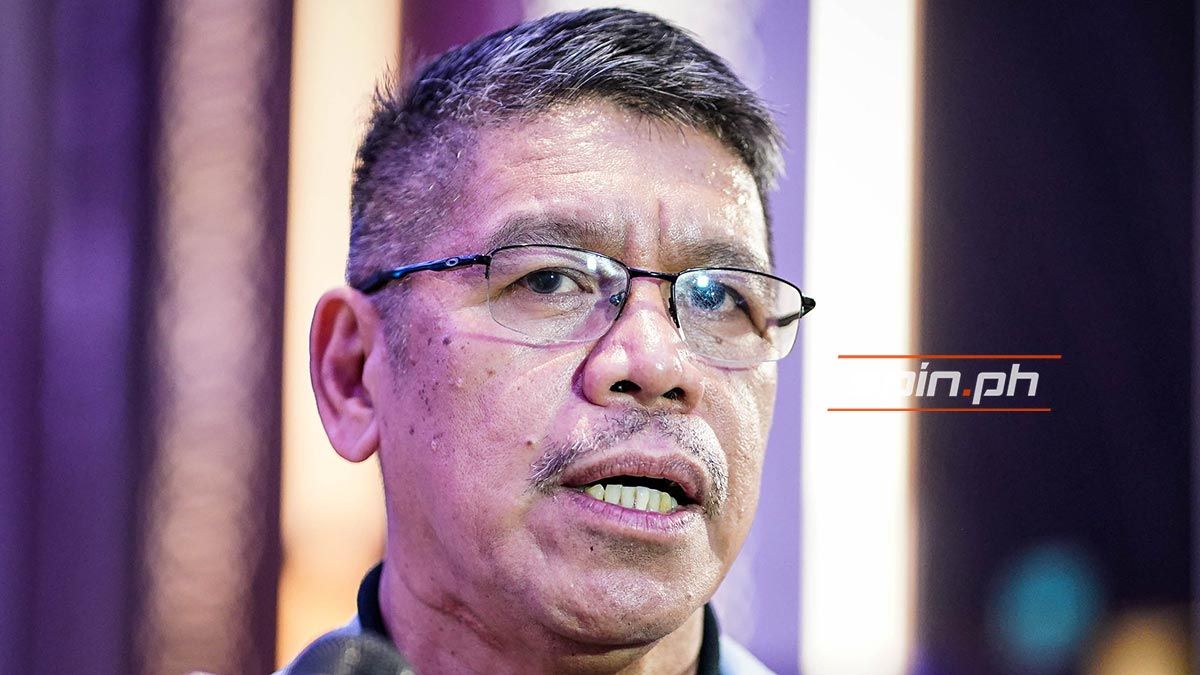
Photo by: Jerome Ascano
The coach is low-key and is incapable of self-promotion that it is easy to forget that Austria now ranks among the five most successful PBA coaches.
It is even no surprise that no one cares to remember that he was once an elite player himself.
The 5-foot-10 guard was in fact one of the best guards of his era, even earning a spot in the Northern Cement-backed team which won the 1982 ABC Under-18 Championship in Manila – the last time the Philippines won that title.
That team was led by PBA legend Hector Calma and coached by the late Ron Jacobs. Future coaches Jong Uichico, Franz Pumaren and Tonichi Yturri were also part of that team, alongside Elmer Reyes, Rey Cuenco, Alfie Almario, and Louie Brill.
After his collegiate run with Lyceum and a stint with Masagana 99 under former Agriculture Secretary Domingo Panganiban and NIc Jorge in the old Philippine Amateur Basketball League (PABL), he was part of the first batch of players to go through the drafting process.
League newcomer Shell Azodrin took Austria in the fourth round of the 1985 PBA Draft and he went on to win that season’s Rookie of the Year award. He remains the lone player taken past the second round to capture the top honor for neophytes.
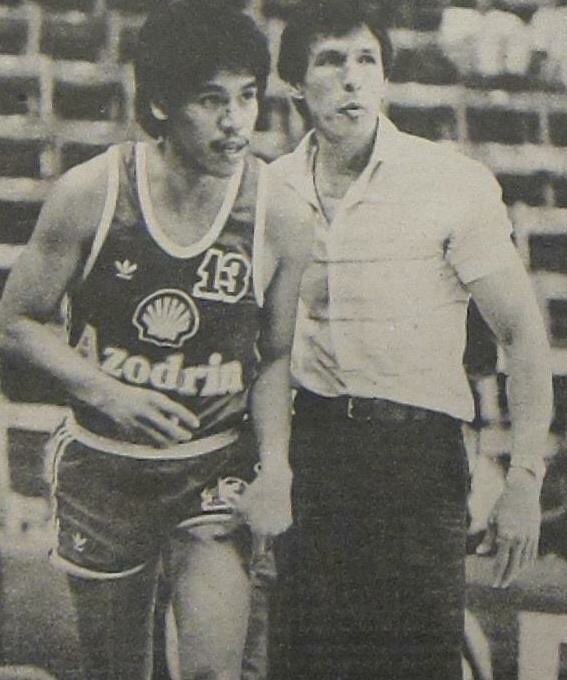
Austria played nine seasons in the pro league for the Shell franchise and later on Pepsi, playing his final year in the PBA in 1993.
Coaching never was in Austria’s plans, but the shift was natural being a student of the game.
“I was just learning every time na nakikinig ako sa coaches ko. I never dreamed of becoming a coach,” he said.
The idea was first floated by Panganiban, who was a big influence in Austria’s life both coming from southern Luzon (Austria is from Sariaya, Quezon and Panganiban is from Tanauan, Batangas). Panganiban saw Austria’s potential to be a good tactician way back in the latter’s time in the PABL.
“I’ve learned a lot from my coaches,” he said, rattling off the names of Jorge and Jacobs, Shell mentors Freddie Webb, Ed Ocampo, Joe Lipa, and Dante Silverio, and Pepsi chief tactician Derrick Pumaren.
“Nakita ko sa kanila kung paano nade-develop ang isang team,” he said. “Sa kanila ako nagka-idea sa principles ng defense and offense and every now and then, binabalikan ko yung mga lessons na yun. Pero dahil alam mo naman ang basketball, pabago-bago ang panahon, you have to keep on updating it.”
It was from those experiences that Austria built his coaching foundation and it benefited him greatly when he had his first coaching break with Chowking in the Philippine Basketball League (PBL).
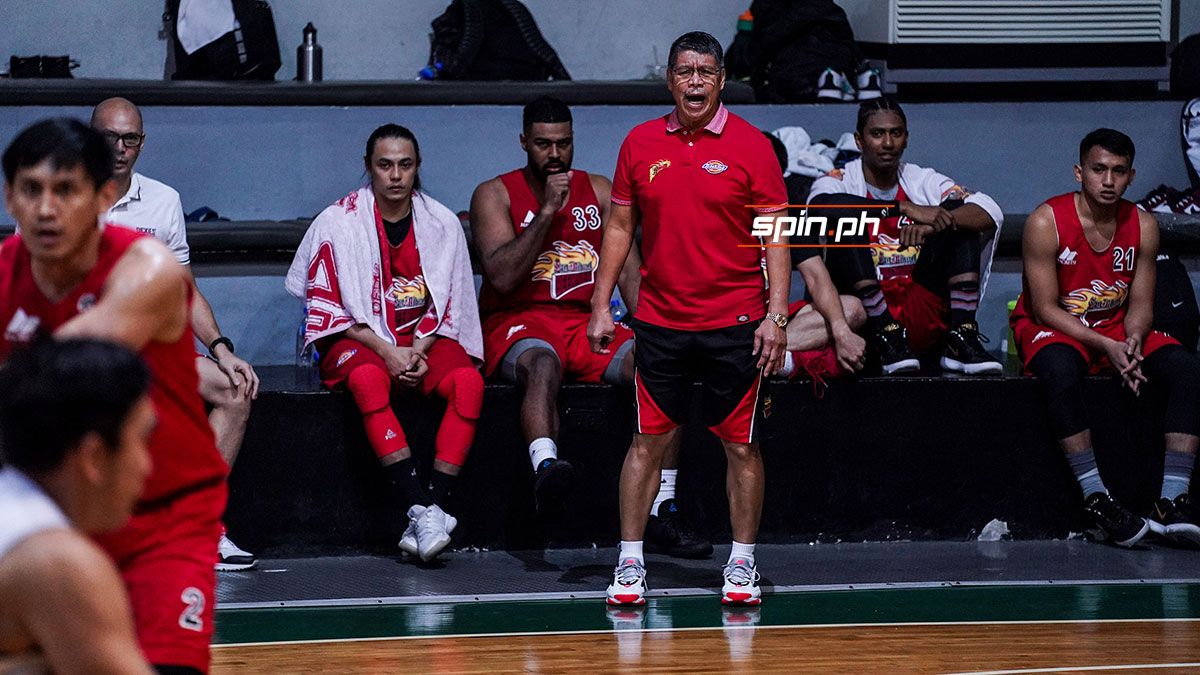
Photo by: Jerome Ascaño
He won two titles with the franchise, then-renamed to Shark Energy Drink, before later on adding another crown when he transferred to Welcoat.
In 2004, Austria briefly returned to his old team Shell, this time as its head coach. His run, though, was short-lived as it came in the Turbochargers’ final season before the franchise disbanded in 2005.
Welcoat brought him back in 2006 for its first two years in the PBA, but Austria was unable to replicate his success in the PBL as the Dragons wallowed in the pro league’s cellar during those formative seasons.
Championships remained elusive for Austria in those times, although it didn’t stop him from forming ferocious teams that refused to quit.
He led Adamson to its first Final Four appearance in 2006 behind UAAP MVP Ken Bono before the Welcoat job in the PBA came calling.
Soon after, he returned for a second run with the Soaring Falcons that lasted from 2008 to 2013, one that saw him steer the team to two more Final Four stints. Unfortunately, they never got past the semifinals despite having players in the caliber of Alex Nuyles, Eric Camson, Roider Cabrera, and Jericho Cruz, to name a few.
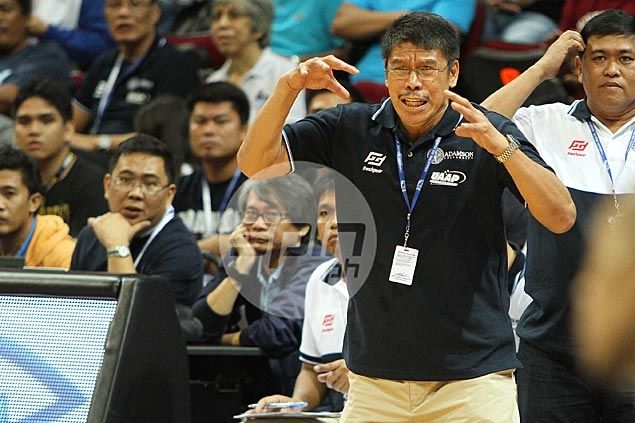
Sour as Austria’s departure from San Marcelino was, it was an experience which he said tested his character and eventually brought out the best in him.
“Pagdating ko sa Adamson, magulo ‘yung team. There was a point na ayaw ko na,” he said. “But tinanggap ko yun as a challenge. Sabi ko, I think this team will define who coach Leo is as a coach. Even though di kami nanalo ng championship, umaabot kami sa Final Four and na-gain namin yung respect ng competition.”
Lessons from those hard-nosed Adamson teams stayed with Austria as he took his act to San Miguel in the ASEAN Basketball League (ABL), first as an assistant to Bobby Parks Sr. before being promoted to the head-coaching position in 2013.
Having a more talented crew, he focused on bringing out the best from his studs led by veterans Asi Taulava (who won the 2013 ABL MVP), Eric Menk, and Leo Avenido, imports Brian and Justin Williams, and the Beermen’s highly-touted upstart Chris Banchero.
It served as a glimpse on what the future held for Austria as San Miguel ran roughshod of the opposition in the eliminations on its way to a sweep of the Indonesia Warriors in the finals.
“Maganda yung materials ng San Miguel. Nagamit namin yung talent nila to the team’s benefit at nakita natin yun sa success ng team,” he said.
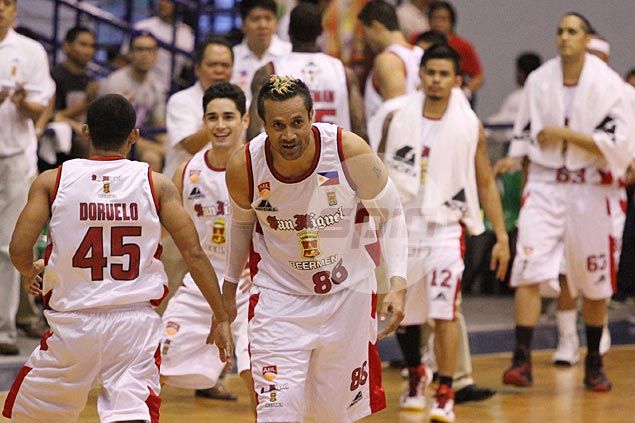
Austria returned to the PBA soon after as part of Petron coach Gee Abanilla’s staff, but did not last long as management chose Purves – the same foe he beat in the ABL Finals – to handle San Miguel with Ravanes starting in the 2014 Commissioner’s Cup.
Again, Austria was lost in the shuffle.
Disappointed but unbowed, Austria knew all good things come to those who wait. True enough two conferences later, or merely six months since Purves’ appointment as an active consultant, Austria was handed the keys to the fabled franchise.
“Sila ang nagbigay ng opportunity sa akin, especially Boss RSA,” Austria said, expressing his gratitude to the SMC president and CEO Ramon S. Ang. “Nung kinuha naman niya ako dito, walang nakakaalam. Siya ang nagtiwala sa akin.”
It was easy for people to belittle what Austria accomplished at San Miguel. After all, when you have such a powerhouse lineup, a championship was expected every conference the Beermen played, right?
But remember, the team that Austria inherited was reeling from the infamous “Petronovela,” ravaged by issues on and off the court that left a powerhouse team delivering underwhelming performances time and time again.
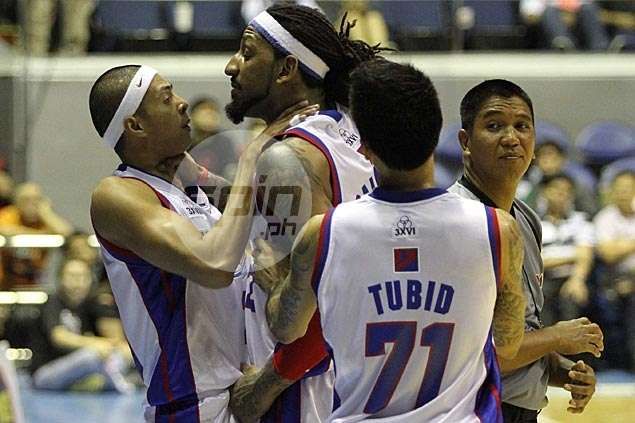
Since Ato Agustin guided Petron to the 2011 Governors’ Cup, the franchise moved from Olsen Racela, to Abanilla, to Ravanes. Also part of the coaching carousel were Rajko Toroman, who was the team consultant during Racela’s time, and Purves, who was on Ravanes’ ears.
It was also in this stretch where Puerto Rican reinforcement Renaldo Balkman threw a fit and grabbed Arwind Santos by the neck back in 2013, adding to the already dark chapter for the once-proud franchise.
Upon Austria’s ascent, San Miguel won the 2015 Philippine Cup in an epic seven-game series against Alaska. That ended the franchise’s 14-year all-Filipino title drought and started a run of success that no other PBA team can match.
How did he do it?
Austria said it was simple change in philosophy. From a tough drillmaster that barked orders from the sidelines, he tapped more to his gentle side and embraced being more of a players’ coach.
“I think the biggest thing na ginawa ko is I changed my philosophy, na you are the authority at kailangan mong sakalin ang players para sumunod sila sa iyo,” he said.
“Lahat ng players, gustong maglaro at manalo kaya nakisama ako sa kanila. Kung anong laro nila, yun ang ibinigay ko and we defined the players’ roles. Kaya kita mo na nagkaroon ng chemistry ang team, dahil alam nila ang roles nila.”
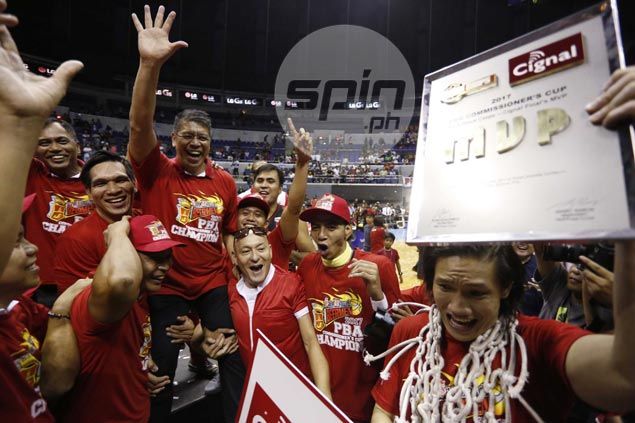
True enough, Austria’s five-year run has seen Fajardo blossom into the league’s best player, perhaps of all time.
Marcio Lassiter and Chris Lutz found their niche in the team, same with Chris Ross who failed to shine in any of his previous PBA stops yet became a vital cog at San Miguel.
Alex Cabagnot was brought back in a midseason trade for Sol Mercado in 2015 to provide stability at the point. He delivered.
Arwind Santos accepted the shift from being the franchise’s top gun to an outstanding role player at the four.
Ronald Tubid, Gabby Espinas, Ryan Arana, and Bitoy Omolon proved valuable role players, as did Jay-R Reyes, Yancy de Ocampo, Billy Mamaril, and Chico Lanete.
“Tulungan yan eh. Kailangan may cooperation,” said Austria. “Hanggang sa dumating na nananalo na ang players. In our first championship, doon na-develop yung samahan dahil talagang nagbigayan sila at hindi na nila inintindi yung kanilang ego.”
Everyone who came in afterwards had no trouble finding their spots, from guys like Von Pessumal, Matt Ganuelas-Rosser, and Brian Heruela to stunning acquisitions like Terrence Romeo, Christian Standhardinger, and Mo Tautuaa.
“Through the years, iba’t ibang players ang nagkakaroon ng award sa amin, and I believe dahil yun sa nakakasama sila sa gusto ng team,” said Austria, using Romeo, who won the Finals MVP in the 2019 Commissioner’s Cup and the season’s Mr. Quality Minutes in his first season with the Beermen, as his prime example.
“In-embrace ni Terrence yung role niya dito. Talagang every player na darating sa amin, ine-embrace ng veterans dahil alam nila na dito sa San Miguel, kailangan kung sinong darating, kailangan nilang mag-produce.”
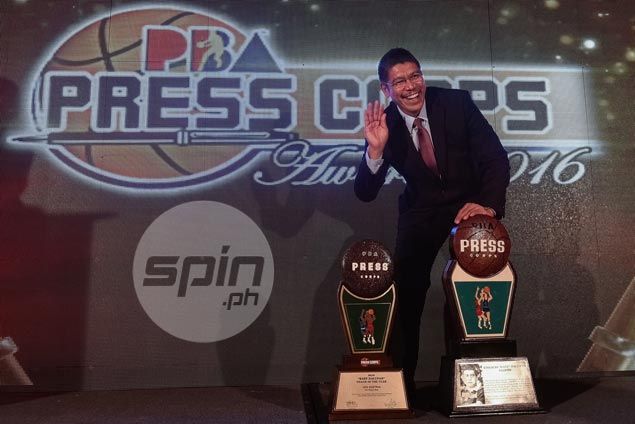
Photo by: Jaime Campos
Austria is never one to toot his own horn, but he has won three Coach of the Year honors, with a fourth on its way. Austria is now fifth among coaches on titles won with eight, tied with Chot Reyes and only trailing Cone (22), Dalupan (15), Black (11), and Jong Uichico (9).
Yet respect remains elusive, with one official even calling the coach by one name – Lucky – behind his back.
The seeming snub goes beyond the organization.
Austria’s name wasn’t even mentioned when Gilas Pilipinas needed a new coach following the infamous Philippine Arena brawl back in 2018. That honor went to Guiao, who handled the national team all the way up to the 2019 Fiba World Cup in China.
Cone soon served in an interim status for the 30th Southeast Asian Games and won the Philippines the gold medal. TNT consultant Mark Dickel, meanwhile, handled Gilas for the Indonesia game in the first window of the 2021 Fiba Asia Cup qualifiers.
Again, Austria said he didn’t feel slighted.
“Kahit di nila ako banggitin, masaya na ako para sa kanila. With the championships na napanalunan ng team namin, masaya na ako doon,” he said.
He famously echoed that during the celebration of the 2019 Philippine Cup championship, saying, “Sa mga players, maraming maraming salamat sa inyo. Nagmukha akong magaling na coach dahil sa inyo.”
His players, however, swore otherwise.
“Magaling si Pops,” said Fajardo, now a six-time PBA MVP and, like Austria, an eight-time champion. “Kung hindi dahil sa kanya, hindi rin siguro magiging ganito ka-successful ang San Miguel.”
Ross added: “Everyone brushes him to the side because they say we only win because we have a stacked roster. But you need someone that can control the multiple personalities we have on the team and also the pressure that comes with a team that is expected to win every conference.
“He watches so much game tape and will always be prepared for our opponent.”
The two-time Defensive Player of the Year also said the supposedly biggest knack on Austria – the coach letting his players make the tough decisions on the court – should be looked at as a strength as it speaks volumes of the trust he puts on his wards.
“He gives us the freedom to feel the game out and do what we feel fits for the situation. He trusts the guys on his team to make the right decisions and that comes from drilling it in practices,” said the Fil-Am guard, who also became a two-time Finals MVP and a BPC winner under Austria.
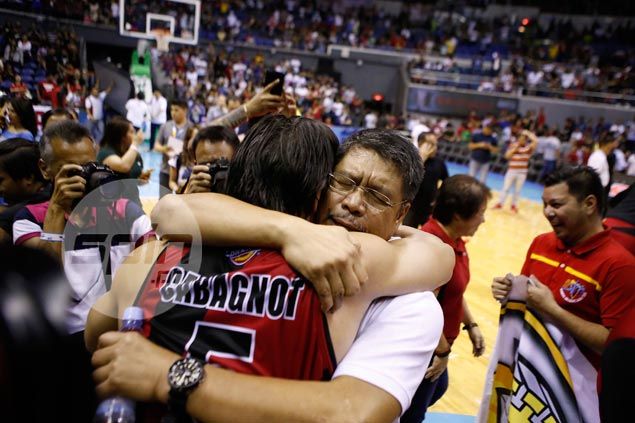
Photo by: Jerome Ascano
Cone said it is a shame that Austria is not getting the credit he deserves.
“I think what he does is overshadowed by the team’s talent and expectations,” the Ginebra mentor said, likening Austria’s situation to that of Phil Jackson’s success with the Jordan-era Chicago Bulls in the 1990s and the Los Angeles Lakers in the 2000s.
“It’s the same with Phil Jackson, who some consider as the greatest NBA coach of all-time, but many think that his success is just a function of coaching great players like Michael Jordan, Shaquille O’Neal, and Kobe Bryant.
“Jackson only won one Coach of the Year award even though he won 11 championships. MJ, Shaq, and Kobe never won a championship before Jackson arrived, and yet Jackson shaped them as well. So the parallel is very strong with coach Leo.”
Alex Compton said what makes Austria a special breed is him being “a sincerely good man.”
“I think the combination of coach Leo’s basketball knowledge and experience, coupled with his sincere humility and goodness are things that make him as a coach,” said Compto, who even played for Austria in their brief time in Welcoat. “He has a good brain for the game and I think so highly of him as a coach and as a person.”
Guiao was straightforward with his assessment of Austria.
“Hindi kasi mayabang si coach Leo, he’s really humble, and he doesn’t promote himself,” Guiao said. “In fact, he deflects the credit. So people tend to underestimate him. But you can’t argue with the success he’s had at San Miguel.”
Cone added: “SMB really struggled before Leo arrived and he shaped them into a dominant force. For coach Leo, the ability to keep those guys focused and all pulling in the same direction year after year is a great talent and skill, and it’s a crime he’s not more recognized for it.”
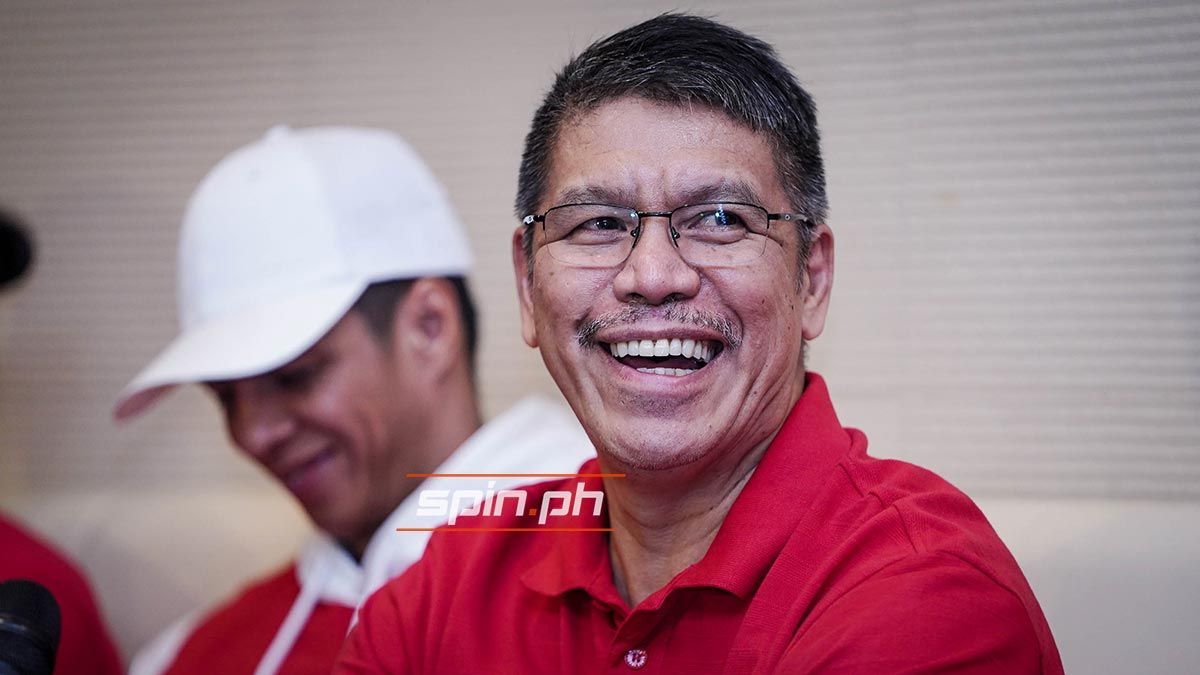
Photo by: Jerome Ascano
As grateful as Austria was for the kind words from his peers, his focus lies on the quest for a sixth consecutive all-Filipino championship at a time when the Beermen will be without the injured Fajardo in the middle.
On his legacy, Austria said history will be the ultimate judge.
“As long as I’m doing my job well, no problem ‘yan sa akin,” he said. “Yung performance ko, sila na ang makakapagsabi (kung okay o hindi). Sa akin lang, I’m so fortunate na I’m able to join a talented team at napalabas ko ang laro nila.”
That one definitely needs more than luck.

